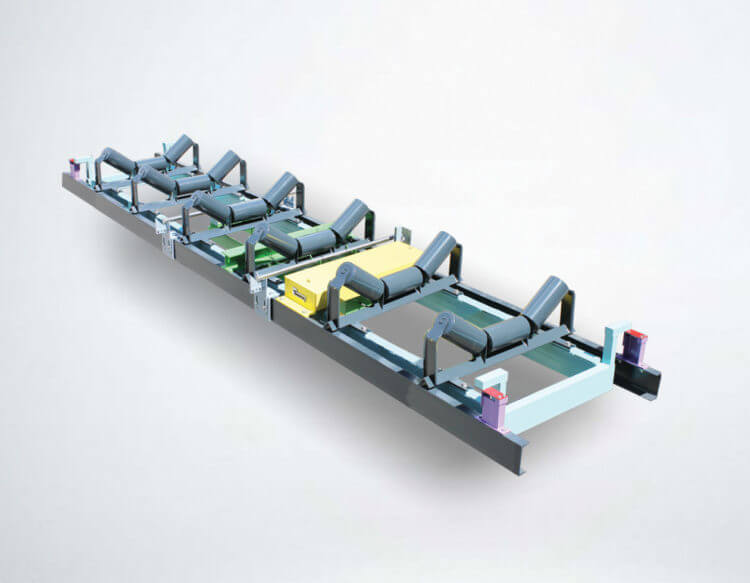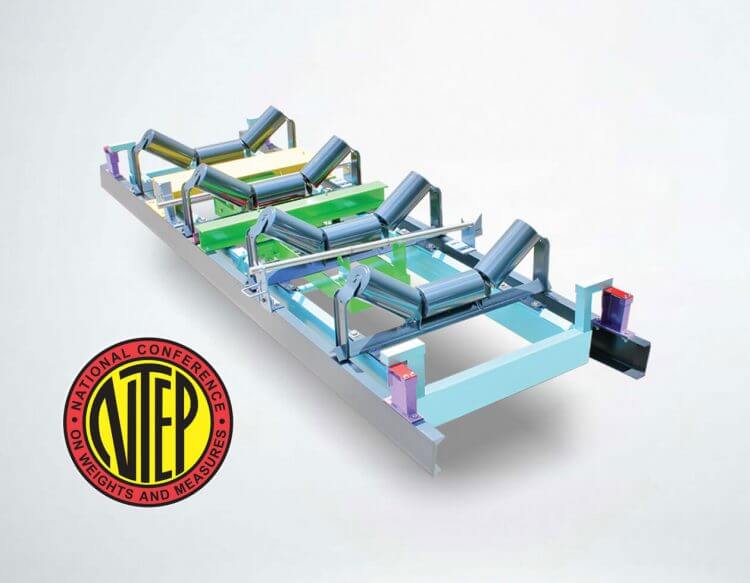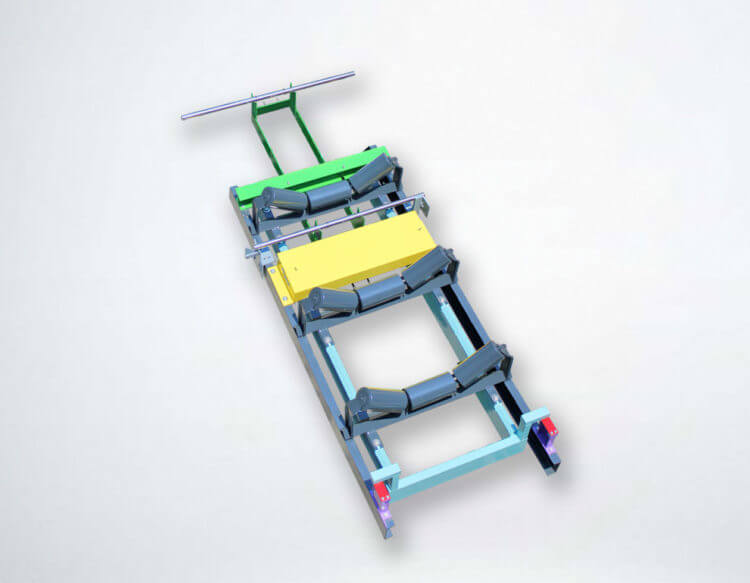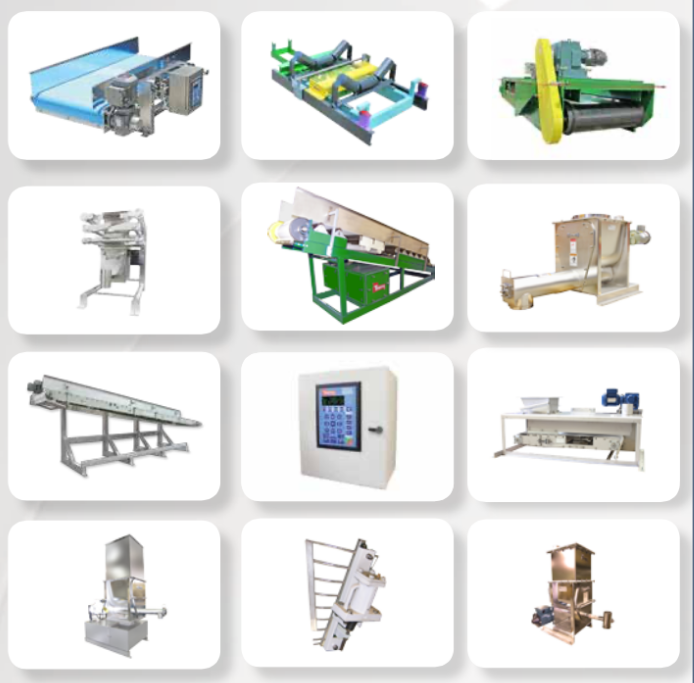Description
FP Belt Scales
The THAYER “FP” Belt Scales is a unique weighing scale specifically designed to accurately weigh “low density” materials. Weighing deck typically consists of 2 to 6 flat idlers, mounted either horizontally or at an incline of up to 12 degrees, depending on material handled. It can be used in new installations or can be seamlessly integrated into an existing conveyor. Typical application include cereals, snack foods, pet foods, wood fibers, paper waste, tobacco, and textiles (bulk densities ranging from 0.5 to 25 pcf).
“FMSS” Scale Technology
A Force Measurement Suspension System (FMSS) is the arrangement of active mechanical elements interposed between the load receptor (belt) and load cell. Properly designed, the FMSS functions as a force vector filter that permits the sum of the chosen uni-directions force components to pass through the system to the load cell while blocking all other nuisance, erroneous or destructive force vectors.
The Flexure Plate systems eliminates all wearing parts, such as bearings, pivots and knife edges, and is not susceptible to vibration. Flexure suspension system transfers to a single load transducer, which accurately measures load regardless of load position. Most platform scales are not designed to be immune to side loading and/or tortional loading caused by the plant environment and by the movement of the belt. These factors can cause poor accuracy and poor calibration stability. The Thayer flexure system cancels all horizontal force vectors and also tare loads to be completely mass counter balanced, permitting load cell sizing based on net rather than gross weight.

Shown above is an ‘FP’ Belt Scale with 2 idler inclined conveyor section located above scale for installation in a cereal line. Inside of the scale enclosure is a THAYER Automatic Test Weight Lifter (“ATWL”) which permits the plant to verify the scale’s calibration from a remote location. Two fixed “lead-in” and two fixed ‘lead-out’ idlers are supplied as an integral part of this weigher, to eliminate belt-tension errors. The counterbalanced dead load , including tubular “C” frame support structure, weighbridge, and two weigh idlers, weighs 250 pounds. The live load (weight of cereal) weighs 10 pounds, giving a tare-to-net load ratio of 25. The load sensor is sized for 12 pounds, allowing 83% of the full scale range to be used for the net load measurement. This assures a high signal-to-noise ratio. Two operators weighing 180 pounds each could stand on the weighbridge and would not cause a calibration shift. This ‘overload’ represents 30 times the full scale measurement range of the load sensor. This is one example of the benefit of THAYER “FMSS” technology.








